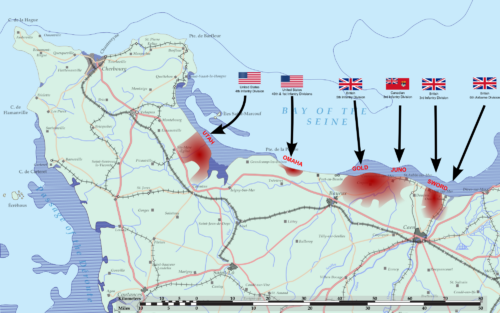Salmon took center stage at this year’s Seattle International Film Festival, with multiple documentaries either directly or tangentially addressing this topic that is so important to the Pacific Northwest and our environment.
Perhaps the most anticipated of these films (for me, at least) was “The Wild,” directed by Mark Titus. It is a follow-up to his 2015 film “The Breach,” which I previously reviewed here on the Cascadia Advocate.
But for a different outcome in the 2016 presidential election, making “The Wild” might not have been necessary — or, at least, it would be a very different film.
“The Breach” ends with the good news that President Barack Obama’s Environmental Protection Agency (EPA) had issued a report concluding that a proposed copper mine in the headwaters of Bristol Bay, Alaska would have a detrimental impact on the salmon fishery. This meant that the permit process for the Pebble Mine was essentially stopped before it started.
This was great news for Bristol Bay and anyone else who cares about the environment, especially salmon and their role in the environment. However, as I noted in my 2017 article about “The Breach,” Scott Pruitt, Trump’s first head of the EPA, met with the CEO of the mining company, Pebble Limited Partnership, in May of that year and hours later rescinded he Obama-era proposal to protect the area.

World premiere poster for The Wild
This brings us to the start of “The Wild.” Having previously thought this one battle for salmon was already won, Titus now had to ask himself, and through the subtitle of the film, asks all of us, “how do you save what you love?”
At the first screening of “The Wild”, which was the world premiere of the film, Titus introduced the film with his answer: that “connection, ultimately, can save us.”
In the film he connects with many activists, both everyday citizens and local and national celebrities, discussing their connection to Alaska’s Bristol Bay, the eastern-most arm of the Bering Sea, and what they are doing to try to protect it.
Renowned Seattle chef and restaurateur Tom Douglas, who was also at the premiere, notes in the film that it’s easier to maintain a unblemished habitat like Bristol Bay than to try to recover salmon in places like Seattle where humans have already caused so much environmental damage.

The Wild
Release Year: 2019
Director: Mark Titus
Running Time: 60 minutes
Watch trailer
Bristol Bay is the last remaining undamaged salmon fishery in the world, and it has been supporting a Native American subsistence culture for over four-thousand years. There are also very active commercial and sport fishing industries, with a total of 14,000 jobs connected to the fishery.
Even with all of this fishing, the fishery is closely and sustainably managed so that salmon population does not decrease.
Pebble’s CEO Tom Collier argues that the mine would create 800 to 1,000 jobs for the next twenty years, and that “it’s pretty damn easy to sit in Seattle and say that they shouldn’t have development in rural Alaska.”
However, putting 14,000 jobs at risk for adding a fraction as many for a finite period of time doesn’t sound like smart development, no matter where you live.
Collier does not leave a good impression on viewers, leading me to ask Titus why he thought Collier was willing to be interviewed for the film.
He said he is not sure, but thought it could mix of two theories that I posited: first, that Pebble feels emboldened by EPA reversal and current administration and therefor are not as defensive, and second, that they are feeling desperate to get the mine permitted as soon as possible before there is another Presidential election and that they want to get their message in front of any camera they can.
“I think Pebble desired a perception of transparency, normalcy and legitimacy to the public,” Titus said.

Director Mark Titus
It’s not a given that the EPA will okay the permit Collier is seeking, and Pebble, by Collier’s admission, has already spent $700 million to get to this point.
The Army Corps of Engineers is currently accepting public comments on their Draft Environmental Impact Statement (DEIS) and will likely issue their final Environmental Impact Statement in the spring of 2020, Titus says.
They will then issue a decision, which could either be an approval of the permit with the mine proposal as it is, approval of the permit with conditions, or a denial of the application.
A mine expert quoted in the film says that the mine is not economically feasible unless they make it much bigger than proposed in the permit application, and therefore the current DEIS is wrong.
Collier says it is likely that there would be additional phases of the mine, but that each expansion has to go through the permit process.
Activists fear that once the initial application is approved, it will be next to impossible for the other phases to be denied. Plus, even just the initial scope of the mine will cause catastrophic damage to Alaska and the Earth, our common home.
After the premiere and two additional showings at SIFF, the film is next going to be screened in Alaska, then it will be going on the festival circuit. Titus and his team at Eva’s Wild will be connecting to people at screenings and “offering multiple ways for people to take action through use of their votes, voices and dollars,” Titus said.
The DEIS public comment period ends July 1st.
Save Bristol Bay has a form with a message that you can customize to be sent in to the public comment email. You can get more information of the proposed mine and it’s potential impact there or on Eva’s Wild. Eva’s Wild also has trailers of “The Wild”, information about upcoming screenings, copies of “The Breach” for purchase, contact information if you want to host a screening of “The Breach”, and a mailing list you can sign up for to keep abreast of the issue.



















Monday, June 17th, 2019
VICTORY! Cap and invest bill clears Oregon State House of Representatives
It’s time to Act on Climate.
That’s the message the Oregon State House of Representatives sent today by giving final approval to House Bill 2020 — groundbreaking legislation that makes Oregon the second state in the country to impose a cap on emissions of harmful air pollutants and put a price on pollution that will raise revenue to facilitate a just and responsible transition to a clean energy future.
“We see the effects of climate change in record temperatures, declining snowpack, reduced summer streamflow, water scarcity, increased wildfires, and elevated public health risks,” said Governor Kate Brown, who lauded the vote. “We have a historic opportunity to protect our children’s futures by building long-term competitiveness while creating good jobs and improving access to affordable energy.”
Here’s a synopsis of what the bill does, written by Oregon House Democrats:
The system HB 2020 will create is similar to the one that California has.
Thirty-six Oregon state representatives voted to adopt the bill, with twenty-four opposed. The roll call on final passage in the House was as follows:
Republicans decried the bill in harsh, hyperbolic terms and tried repeatedly to kill it. They attempted to send it back to committee, delay its consideration indefinitely, and contend that minority consent was required to pass it. Majority Democrats rebuffed all of these stalling maneuvers and passed the bill over their objections.
“The climate crisis is a constant threat to our way of life, a threat that would make the planet, as we know it, uninhabitable,” said State Representative Karin Power (D-Milwaukie), who played a key role in putting the legislation together. “We have faced great challenges before and come out stronger for them. We can’t delay any longer. If we do, we will have to face future generations and explain to them our inaction, even with all we knew. Today, we can show that economy-wide programs to transition from fossil fuels toward a clean, renewable future are possible.”
“For regions already experiencing climate change, these investments can’t come soon enough,” added State Representative Pam Marsh (D-Ashland).
“In my part of the state, we need money for forest management projects that will sequester carbon as we prevent and suppress wildfires.”
“As droughts become more frequent and temperatures continue to rise, we need to upgrade and protect our drinking water and irrigation systems. And we need support from the state to buttress and diversify an economy that is exceedingly vulnerable to the impacts of smoke and fire.”
To reach Governor Kate Brown’s desk, the bill must get through the Oregon State Senate, which won’t be simple or easy. One Oregon Democratic Senator, Betsy Johnson, is a certain no vote, while two more Democrats are uncommitted.
Hard work may lie ahead to get this bill across the finish line, but it’s certainly a huge milestone to see this bill pass the Oregon House. Congratulations to Representative Power and Speaker Kotek on a job well done. The effort to secure a clean energy future for Cascadia and the United States continues.
# Written by Andrew Villeneuve :: 11:46 PM
Categories: Core Encyclopedia Topics, Legislative Advocacy, Our Environment
Tags: Climate Crisis, Energy & Power, Pollution
Leave a comment